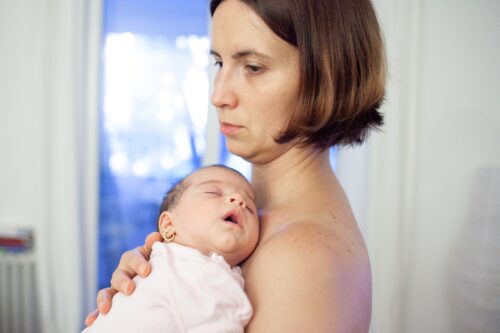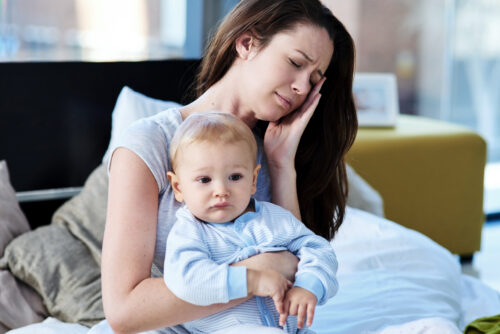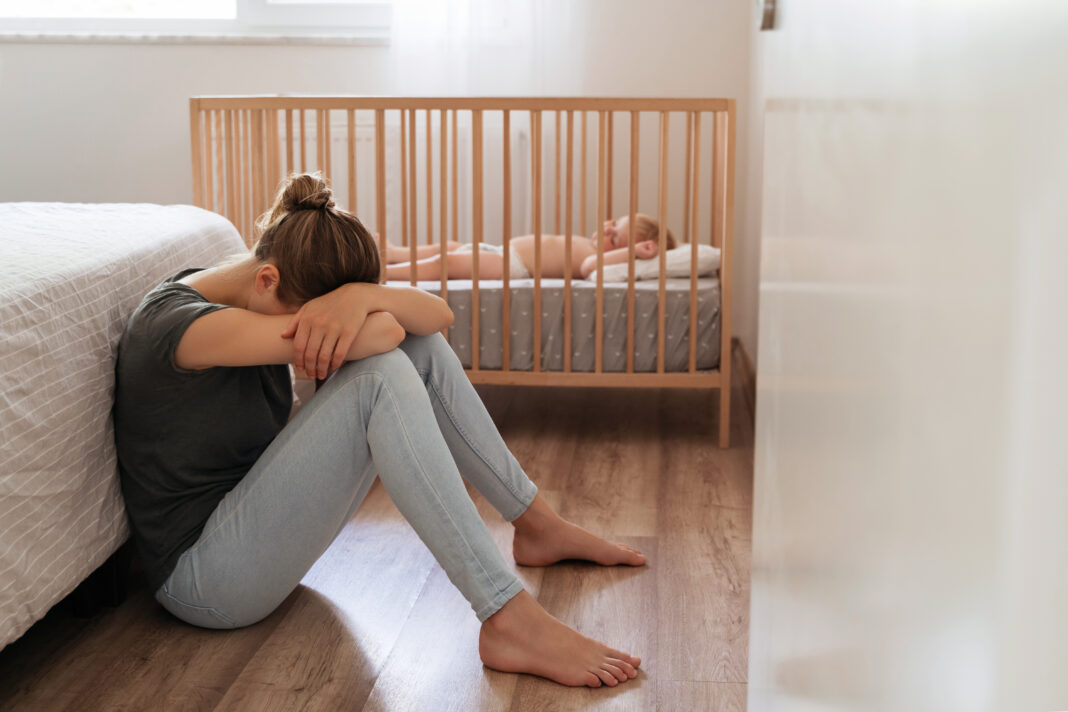Understanding the Postpartum Period: What Every New Mum Needs to Know
The postpartum period is often described as a time of joy and bonding, but for many new mothers, it can also be a time of uncertainty, exhaustion, and overwhelming emotions. While every woman’s experience is unique, there are some common challenges and changes that many go through.
If you’re feeling confused, anxious, or even detached from your baby in those first few weeks, know that you’re not alone—and more importantly, these feelings don’t define you as a mother.
In this blog, we’ll cover what to expect in the postpartum period, what’s normal and not-so-normal, and how you can take care of yourself physically and mentally during this transition.

- The First Days After Birth: What to Expect
Right after giving birth, your body and emotions go through intense changes. Some of the most common things new mothers experience include:
✔ Physical Recovery: Vaginal soreness, bleeding (lochia), cramping as the uterus shrinks, or discomfort from a C-section.
✔ Emotional Highs and Lows: Many women feel an emotional rollercoaster due to hormonal shifts, lack of sleep, and the major life change of becoming a mum.
✔ Milk Production Changes: Some women experience engorgement, discomfort, or difficulty with breastfeeding.
✔ Overwhelm and Uncertainty: The sudden responsibility of caring for a newborn can feel scary, even if you’ve prepared.

- What If I Don’t Feel an Immediate Bond with My Baby?
One of the biggest unspoken fears many mothers have is this: “What if I don’t feel an instant connection with my baby?”
Here’s the truth:
Not all mothers feel an immediate bond, and that’s completely normal. Movies and social media often paint an unrealistic picture of an instant, overwhelming love. In reality, some mums feel distant, numb, or even uninterested in holding their baby right away.
Why Does This Happen?
- Birth trauma or a difficult labor can leave you emotionally drained.
- Hormonal fluctuations can impact how you feel in those first few weeks.
- The sudden loss of personal freedom and sleep deprivation can feel overwhelming.
What Can You Do?
✅ Give Yourself Time: Bonding isn’t always instant—it develops through consistent care, skin-to-skin contact, and daily interactions over time.
✅ Don’t Judge Yourself: Feeling disconnected from your baby does not mean you don’t love them or that you’re a bad mum.
✅ Talk to Someone: If feelings of detachment persist beyond a few weeks or come with sadness, hopelessness, or guilt, it could be a sign of postpartum depression (PPD), which is treatable with support.

- Physical Recovery: What’s Normal and When to Seek Help
Your body has been through an incredible journey, and healing takes time. Here’s what’s normal vs. when to check in with your doctor:
🔹 Normal Postpartum Recovery Symptoms:
✔ Vaginal bleeding (lochia) for up to six weeks
✔ Uterine contractions or cramping, especially during breastfeeding
✔ Swelling in feet or legs from fluid retention
✔ Mild mood swings, often called “baby blues” (lasting up to two weeks)
🔸 When to Seek Medical Attention:
🚩 Heavy bleeding that soaks more than one pad per hour
🚩 Severe pain that doesn’t improve with medication
🚩 High fever (possible infection)
🚩 Intense sadness, hopelessness, or thoughts of harming yourself or your baby
- Mental and Emotional Well-Being: Recognizing Postpartum Mood Changes
The “Baby Blues” (Common & Temporary)
Up to 80% of new mums experience mood swings, tearfulness, and anxiety in the first two weeks postpartum due to hormonal shifts. This usually improves without medical intervention.
Postpartum Depression (PPD) (Requires Support & Treatment)
Unlike baby blues, PPD is more intense and lasts longer. It can develop anytime in the first year postpartum and often requires professional support.
Signs of PPD:
🚩 Persistent sadness or feeling emotionally numb
🚩 Feeling guilty or like you’re “failing” as a mother
🚩 Anxiety that interferes with daily life
🚩 Loss of interest in things you used to enjoy
🚩 Feeling disconnected from your baby
🚩 Thoughts of harming yourself or your baby (seek immediate help)
If you experience any of these symptoms, please reach out for support. You are not alone, and help is available through counselling, support groups, and medication if needed.

- Taking Care of Yourself: Practical Self-Care Tips for New Mums
Caring for your baby starts with caring for yourself. Here’s how you can priorities your well-being:
💙 Accept Help: Let your partner, family, or friends support you. You don’t have to do everything alone.
😴 Rest When You Can: Sleep deprivation is tough. Even short naps help.
🥗 Eat Nourishing Foods: Priorities iron-rich, protein-packed meals to aid healing.
🏃♀️ Move Gently: Light walks and stretching can boost mood and circulation.
💬 Talk About How You Feel: Don’t keep emotions bottled up. Share with your partner or a trusted friend.
Final Thoughts: You’re Not Alone in This Journey
The postpartum period is messy, emotional, and different for every woman. Whether you’re experiencing pure joy, exhaustion, or something in between, all feelings are valid.
The most important thing is to be kind to yourself. Healing—physically and emotionally—takes time, and every mother’s journey looks different.
💬 Mums, what was the biggest surprise about your postpartum experience? If you’re currently in this stage, what questions do you have? Share in the comments! 💙😊




